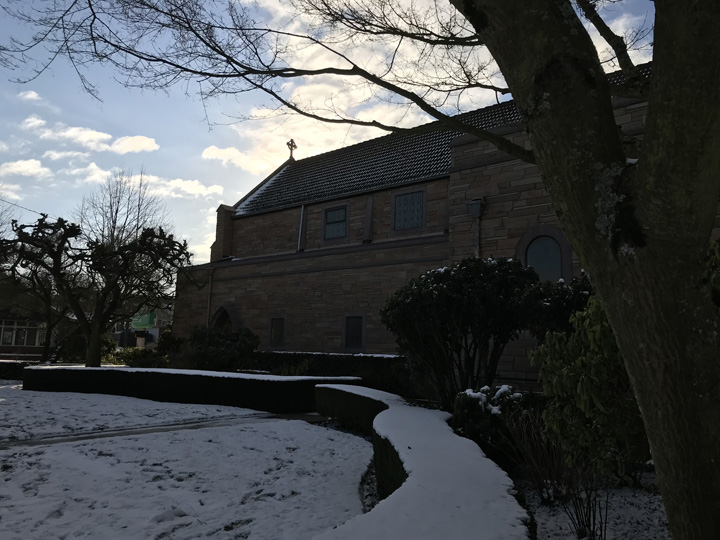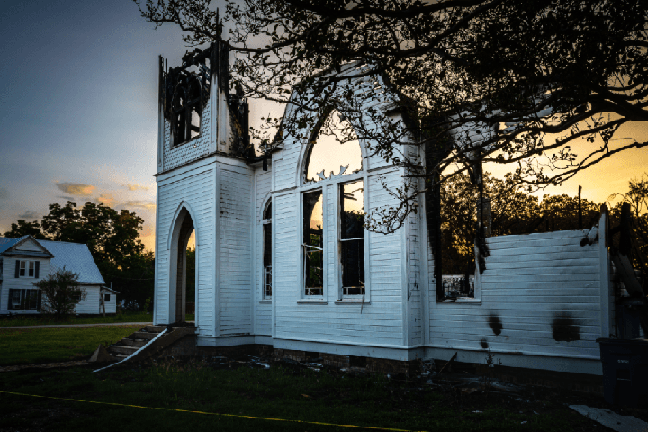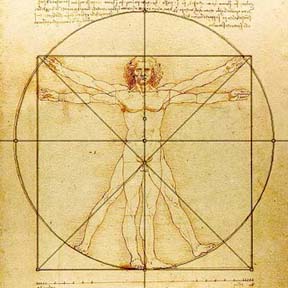January 2021
|
Glow with the Spirit at Christmas
We don’t have much time to fawn over how cute Jesus was when he
was born in Bethlehem. In a few short paragraphs he’s in
Jerusalem as a twelve year old (Luke 2:7, 41–51). Why so fast?
Because what Jesus will do matters most. Matthew 1:21 says he’s
come to save us from our sins. Much later 1 Timothy 1:15 says
the same.
—Pastor
Marshall |
|
PRESIDENT'S REPORT....by
Cary Natiello
Hello dear
friends in Christ,
GOOD RIDDANCE to 2020 What a year to
never forget or repeat.
Let’s pray that 2021 will be a great year, one that we
can look forward to resuming in-person worship services and
getting back to some sense of normal.
But for now, we must stay the course and remain diligent
in our precautions to maintain our health and safety.
Sadly, for now, the church doors remain closed.
OUR GIVING Our giving
through November was $225,200 against a budgeted $217,000.
Thank-you for your continued financial support of our
staff and buildings. Unfortunately,
we were informed in December that
Tilden School will
permanently close as of June 17, 2021 due to four tenured
teachers deciding to retire at the end of the school year, as
well as the director, Whitney Tjerandsen.
Tilden has paid over $30,000 a year to FLCWS in rent and
other financial support of many of our church projects.
While it will be hard to find tenants as great as them,
it is critical for us financially that we do.
We will be pursuing other potential renters for the space
early next year.
The space will be available August 1, 2021.
TILDEN SCHOOL Tilden school
was started by Whitney Tjerandsen, who, in 1985 began looking
for an appropriate place for her kindergarten aged son to attend
school. She visited
over 25 schools and came to the conclusion that the only way to
get both the strong academics that she loved, and the kindness
she felt was crucial, was to start her own school.
Tilden has been serving students in the area for the last
35 years. Today,
Tilden School serves about 100 West Seattle kindergarten through
5th grade students with academic and individualized education.
They have been great tenants in the church Parish House
since 2002. Some good news
is that 10 members of our congregation pledged that they will
increase their giving in 2021 and 15 members pledged their
giving will remain the same as this year.
We also had six congregation members pledge for 2021 that
did not pledge in 2020.
There are a number of our congregation that generously
give to the church but do not pledge.
Overall, pledges for 2021 look very good.
2021 BUDGET The council is
preparing our 2021 budget for review at our annual meeting which
will be held on Sunday, January 31, 2021 at 10:30 via ZOOM
invite. If you need
help using ZOOM please contact the church office or go to the
ZOOM website for user information.
COVID-19 SAFETY PLAN In addition,
the council has been working on its
COVID-19
Safety
Plan –
Return
to
Indoor Worship
Services Notebook
to use as a detailed guide for resuming indoor worship.
The guide is primarily for office use covering such
things as responsibilities of the pastor, staff and volunteers,
what to do in the case of a COVID-19 exposure, and cleaning and
disinfecting the church.
The Notebook is 17 pages and is not intended to be
distributed to the congregation because it is written in the
form of a legal document to meet the various Health Service
requirements. The
complete document is available to review upon request but it
will continue to be modified as new information becomes
available. If you
would like to review the document please contact the church
office.
VACCINES
Based on
recent survey data, it appears that more Americans (it varies
but some reports are over 60%), are willing to get the vaccine
when it is available.
Hopefully that number will continue to grow.
According to Dr. Anthony Fauci, vaccines are not expected
to be widely available to the general public until March or
April. He also said
that it won’t be until the end of summer or early fall before we
could start approaching some degree of normality.
Based on everything we know today, it is expected that we
will need to continue to follow all safety guidelines (masks,
social distancing, etc.) well into 2021.
I hope
you had a joyous Christmas, even without indoor services.
I am grateful to Pastor Marshall for his diligent work on
providing us with the online abbreviated liturgies, many of
which include music videos and sound of choirs singing church
hymns. Please plan
to attend the Annual Meeting at the end of January.
God’s
peace be with you.
|
|
ANNOUNCEMENTS:
FOOD BANK COLLECTION
suggested donation for January is pasta, noodles and sauces, but
any non-perishable foods are acceptable.
Pastor Marshall will take these much needed donated items
of food into the WS Food Bank if left at the church.
Please call or email the office to arrange for the items
to be brought in if left at the front door of the offices.
ANNUAL REPORT
for 2020:
Staff, officer and committee reports are due.
If you have not already sent your report in to the office
please do so as soon as possible.
The Annual Meeting is Sunday, January 31st, at 10:30 am
via ZOOM online.
Email invitations to join the meeting will be sent out closer to
the date.
PASTOR MARSHALL
continues to provide Home Communion upon request.
PASTOR MARSHALL’s
next Koran Class starts on Monday, January 4th and continues
through Monday the 25th.
Call the office if you would like to be sent the ZOOM
online instructions.
PASTOR MARSHALL
meets with six members of the ELCA Cluster group monthly via
ZOOM online.
OFFERING ENVELOPES
for 2021 will be delivered or mailed this year.
OUR THANKS
for the donations – we were able to deliver six sweatshirts to
Compass Housing Alliance.
|
|
Philippians
The Apostle Saint Paul
“I count everything as loss because of
the surpassing worth of knowing Jesus.”
(3:8)
by Pastor Marshall
This is a startling verse both for its costs
and benefits. Martin Luther thought the cost – counting
everything as loss – was rooted in self-denial. For him that
meant bringing “your will, your understanding – that is, your
righteousness, wisdom, and works – into subjugation, or [to]
cast them away…. [and] deny one’s entire self, not just some
part…. You, yourself in your entirety, need to be put to death
and become nothing and hold on to nothing in which you might
place your confidence before God. This does not happen unless
you deny what is highest and best in you, namely, your
righteousness and wisdom, and [admit you’re] a sinner and a
fool…. For to a man who despairs of himself, God through Christ
cannot fail to be gracious…. And [then be sure to prepare] for
temptation,… for there is nothing the world can tolerate hearing
less than that the works of its own righteousness are condemned”
(Luther’s Works
67:292–93). For Luther, this call
to self-denial slams us against a wall. “Consider now,” he
writes, “whether you will readily forsake your presumptuousness,
holiness, and self-righteousness, and let yourself be shattered
and say: ‘Dear Lord, I am a useless, worthless vessel. I will
gladly let myself be broken to pieces’…. [If not] you will [have
to] wait for Him to come on the Last Day and smash you to pieces
in the abyss of hell, where you will be utterly shattered.
Either be broken to pieces here voluntarily or be smashed there
with hostility, for no one will be able to flee from God’s
wrath” (LW 68:130)! So
only “simple and hungry people… receive the Word of God and are
nourished by it” (LW
76:403). Being broken into pieces is how “God humbles us amply”
(LW 22:133). And it’s
worth it because it brings the surpassing worth of Christ who is
“sure and eternal and better than all worldly processions” (LW
12:161). Therefore we “can render God no other satisfaction than
that procured by the death of Jesus Christ” (LW
22:147). “Then all wrath stops… and God appears as nothing but
the merciful One who did not spare His own Son but gave him up
for us all” (LW
26:42). In this verse then we
see how “Christ is the turning point” in Christianity, since by
believing in him what we “once treasured turns out to be”
worthless (John Reumann,
Philippians, 2008, p. 519). Even so we cling to our past
treasures – keeping them from being “confused values, wasted
opportunities, inner turmoil, and social wreckage” (Fred
Craddock, Philippians,
1985, p. 59). And that’s because devaluing family, friends,
teachers, property, “status, material benefits, honor [and]
comforts” is tough on us (George Hunsinger,
Philippians, 2020, p.
98). Even so, Christ remains the one of surpassing worth – “a
complete gift [which surpasses] in great measure the cheapness
of the efforts that are made through our striving” for worldly
possessions (John Chrysostom,
Homilies on Philppians, trans. Pauline Allen, 2013, pp.
238–39). Therefore the joy rooted in faith in Christ and his
cross is the only “genuine and complete joy,… for it is not
worldly or outward, but rather a secret and hidden joy” Luther
says. “Indeed,” he continues, “bearing all manner of suffering
for the love of Christ becomes sweet and easy…. For… all the
joys of the world… would not help you stand against temptation
or misfortune. For worldly joys rest solely on unstable
[pleasures]… and can last only so long as such things are
present and fades away… if some minor adversity has to be
endured. But [Christian joy lasts] forever (since its
foundation, too, is eternal)…. Thus we are able with a joyful
heart to forsake and little esteem all the world’s joys” (LW
69:83–84).
|
|
1 Peter 1:12
Monthly Home Bible Study,
January 2021, Number 335
The Reverend Ronald F. Marshall
Along with our other regular study of Scripture, let us join as
a congregation in this home study. We will
study alone then talk
informally about the assigned verses together as we have
opportunity. In this way we can “gather
together around the
Word” even though physically we will not be getting together
(Acts 13.44). (This study uses the RSV translation.)
We need to support each other in this difficult project. In 1851
Kierkegaard wrote that the Bible is “an extremely dangerous
book.... [because] it is an imperious book... – it takes the
whole man and may suddenly and radically change... life on a
prodigious scale” (For
Self-Examination). And in 1967 Thomas Merton wrote that “we
all instinctively know that it is dangerous to become involved
in the Bible” (Opening
the Bible). Indeed this word “kills” us (Hosea 6.5) because
we are “a rebellious people” (Isaiah 30.9)! As Lutherans,
however, we are still to “abide in the womb of the Word” (Luther's
Works 17.93) by constantly “ruminating on the Word” (LW
30.219) so that we may “become like the Word” (LW
29.155) by thinking “in the way Scripture does” (LW
25.261). Before you study then, pray: “Blessed Lord, who caused
all Holy Scriptures to be written for our learning: Grant us so
to hear them, read, mark, learn and inwardly digest them, that
we may embrace and ever hold fast the blessed hope of
everlasting life, which you have given us in Our Savior Jesus
Christ. Amen” (quoted in R. F. Marshall,
Making A New World: How
Lutherans Read the Bible, 2003, p. 12). And don’t give up,
for as Luther said, we “have in Scripture enough to study for
all eternity” (LW
75:422)!
Week I.
Read 1 Peter 1.12 noting the phrase
serving not themselves. What’s wrong with serving yourself?
On this read Luke 9.23 noting the words
deny,
self,
daily and
follow. In order to
follow Jesus, why do we have to deny ourselves? On this read
John 3.30 noting the play between the two words
decrease and
increase. Why is this
asymmetrical relationship between Jesus and his followers
necessary? Check out Matthew 6.24 noting the word pairs
love and
devoted, in contrast
to hate and
despise. Why this
forced exclusion? Read Exodus 34.14 about God’s
name being
Jealous. Why does God
force this narrowness on us – refusing to share any of us with
another ultimate purpose? On this read John 3.3 noting the
phrase born anew. Why
isn’t our ordinary, first physical birth enough? Go to Psalm
51.5 where it says we are all born in
sin. What does that
do to us? Note in Mark 7.21–22 the list of what comes out of us
– evil thoughts,
fornication,
theft,
murder,
adultery,
coveting,
wickedness,
deceit,
licentiousness,
envy,
slander,
pride, and
foolishness, Are we
really born with all of this inside of us? Or does it come from
bad influences? On this read 2 Corinthians 7.5 noting the
contrast between fighting
without and fear within. The problems within take priority
over those from outside because
grieved into repenting
is highlighted next in 2 Corinthians 7.9. So the
corrupt heart
described in Jeremiah 17.9 takes precedence – it’s our worst
problem. Do you agree? If so, why?
Week II.
Read again 1 Peter 1.12 noting this time the word
revealed. Why does this negative view of ourselves have to
be revealed to us? On this read 2 Corinthians 4.4 noting the
word blinded. Why
does that require revelation to overcome? On this note the word
exertion in Romans
9.16. So is there nothing we can do to help ourselves? On this
check out the words
wretched and deliver
in Romans 7.24. So are we just plain
sick sinners – as in
Mark 2.17? What does that illness do to us? Read 2 Corinthians
3.4–6 noting how
confidence and
competence are not of our own making. Does that explain our
need for revelation?
Week III.
Reread 1 Peter 1.12 noting this time the words
serving and you.
How is that done? On this read Galatians 1.10 noting the words
favor,
men,
pleasing,
servant and
Christ. Why shouldn’t
serving others please them? Check out Isaiah 53.6 noting the
words all,
sheep and
astray. Because of
this we cannot serve others by giving them what they want. Are
we really that clueless? On this read Matthew 9.36 noting the
words helpless and
shepherd. Deep down,
then, we don’t know what’s good for us. On why this is so, check
out Isaiah 5.20 on mixing up
good and
evil. Where does that
leave us? On this read Luke 12.20 noting the word
fool. How does that
happen? Check out John 6.27 on
laboring for the
bread which
perishes. Does that
then leave us only with the
transient as 2
Corinthians 4.18 says? How bad is that?
Week IV.
Read 1 Peter 1.12 one last time noting the same words
serving and
you. What’s the best
way to do that? Read John 6.68 noting the line
words of eternal life.
What do they include? On this go to Colossians 3.2 noting the
line things that are
above. This involves Christ. What’s he about? 1 Corinthians
15.3 say that Christ died
for our sins. Why was that? Read Isaiah59.2 noting the
separation that
sin causes. How is
that bridged? Check out Colossians 2.14 where sin – the bond
with its legal demands – is
canceled on the
cross. How does the
cross do that? Read Romans 5.9 about saving us from
the wrath of God. How
does the death of Jesus do that? Note
the just requirements of
the law in Romans 8.3. Note also the word
peace in Colossians
1.20 – which eliminates God’s wrath. And note
bearing our sin in his
body in 1 Peter 2.24. Does it then all come down to his
sacrifice in Hebrews
9.26? Yes – see that sacrifice in the exchange in 2 Corinthians
8.9 – rich for
poor, and the
poor becomes
rich. Do you agree? |
|
Punishments: A Wake-Up Call
by Pastor Marshall
DOES GOD PUINISH US?
Many Christians today say that he doesn’t. Why would a loving
God do that? But the Bible is pretty clear that God’s love
doesn’t preclude punishments. Ezekiel 14:21 says he sends wars,
diseases, wild beasts and famines to punish us for the sins that
we don’t confess. Jesus picks this up. He says physical problems
are also punishments for the sins that we slough off (John
5:14). The same for accidents – like the tower falling on those
18 people and crushing then to death in Siloam (Luke 13:4). The
Lutheran Confessions (1580) affirm all of this by stating quite
forthrightly that “as a rule,… troubles are punishments for
sins” (The Book of Concord,
ed. T. Tappert, 1959, p. 206). Isaiah 9:19 is haunting –
“Through the wrath of the Lord of hosts the land is burned, and
the people are like fuel for the fire.”
That
brings us to our current pandemic. Is it a punishment too? And
if so, for what? In as much as the COVID-19 virus is a disease,
then it comes under Ezekiel 14:21 and is a divine punishment.
But what is it for? That isn’t spelled out anywhere. In those
cases Martin Luther says to measure yourself against the Ten
Commandments and see if you have any infractions that you’ve
been careless about (BC
p. 350). If so, you’ve found the culprit. While that may be
lying for you, it could be stealing for the next person, and so
on. Each person does the examining alone (2 Corinthians 13:5).
Others can help out but only if first asked. Witch hunts are not
part of this examination. But a national time of repenting could
be orchestrated from the highest echelons of government (in a
way similar to the Thanksgiving holiday).
The
benefit in repenting is that it cancels punishments – “repent or
you too will perish” (Luke 13:3, 5). Indeed, God “will destroy
us… if we do not forestall Him through repentance” (Luther’s Works 2:223). So punishments are a wake-up call. “What have
we done to deserve this?’ we cry out. “How can we stop this
punishment?” we groan. Repentance is the answer (1 John 1:9). So
is amendment of life (Romans 6:1–2). Punishments get our
attention to do both – that is their primary function. Here are
the words Luther provides in his
Small Catechism for
repenting: “I, a poor sinner, confess before God that I am
guilty of all sins. In particular I confess _______. For all of
this I am sorry and pray for grace. I mean to do better” (BC
p. 350).
But
what happens if the punishments pass before we repent (Amos
4:6–12)? Are we off the hook? Or does that mean that the
correlation between sin and punishment was wrong to begin with?
Luther thought God sometimes delays his punishments or ends them
early to make them worse later on (LW
28:159–60). So you better watch out and not count your chickens
before they hatch. It also could mean, of all things, that the
devil has interfered with God’s spiritual formation of us – by
using a good, like medicine or a vaccine, to stop the punishment
too early and thwart our repentance and renewal of faith and
life (Stanley Hauerwas,
God, Medicine, and Suffering, 1990). Now that’s a chilling
prospect!
So
where are you in all of this? Are you excited about the new
vaccines coming out? Are you ready to get back to normal –
living out in society again before you take advantage of this
pandemic to intensify your self-examination and repent? If you,
like many, are putting the cart before the horse, maybe a moment
of reflection would be in order. Here is something to
contemplate from Luther – whom Lutherans regard as their “most
eminent teacher” (BC
p. 576):
Consider your own life… and know that even though you have been…
placed into the kingdom of grace,… yet if you always remain as
before, it cannot be beneficial to you…. While you might be
called a Christian, you have let go of Christ, sin is your lord,
you are serving the devil, and you have no more than the name…
of Christianity…. Christ wishes… to purge every day whatever sin
still remains, and blot it out completely, so that we become
quite a different kind and manner of people, inclined and
equipped for every good work. Where [glorious grace] has been
rightly received, sin will surely be found to decease and
diminish daily. Where it is not, the opposite appears (LW
57:188). |
|
BAD CHURCH
Pastor Marshall
Martin Luther said nothing looks more unlike
the church than the church – and that it even could be called
the devil’s whore (Luther’s
Works 27:397, 56:255, 34:74). He also thought pastors were
part of the devil’s army (LW
44:70). Such biting criticism is uncommon from Christians who
stay in the church. So why was Luther so negative? Note also the
Lutheran Confessions (1580) – that “there is an infinite number
of ungodly within the church who oppress it” (The Book of Concord, ed. T. Tappert, 1959, p. 169). So was Luther
wrong – or one of the last honest Christians on earth? Pervasiveness Most of the time when people complain about
the church we think it’s their fault – they caused the trouble
and now they’re crying in their beer. But studies on the bad
church tell another story. It’s not just a few bad apples.
Church trouble is rampant – from corrupt teachings to arson,
personal attacks, embezzlement, contract violations and sexual
abuse. The Alban Institute (Washington D. C.) has covered much
of this over the last fifty years. So has the
Leadership magazine, affiliated with
Christianity Today.
There is also the shocking report published in
Psychology Today
(Jan/Feb 2008) on atheist ministers. So Luther wasn’t having a
bad hair day. Those who reject his diatribes are actually the
ones in the wrong – and naïve as well. Going with this
corruption is a long standing national decline in churches. See
D. Olson, The American
Church in Crisis (2009) and the more recent report that
6,000 to 10,000 churches close each year in America (J. Merritt,
“America’s Epidemic of Empty Churches,”
The Atlantic, November
2018). Survivability But if the church is so bad why are churches
still open? Doesn’t that mean that they’re actually doing
something right – otherwise why are people supporting them? Not
so. Open churches don’t mean they’re actually churches – they
could be phony. So staying open doesn’t automatically mean
anything good. Some have argued that the church ended a long
time ago when attendance was made mandatory (Robert Markus,
The End of Ancient
Christianity, 1991). So open churches could be counterfeits.
See also the studies that show the difference between true
churches and religious enterprises (Daniel V. Biles,
Pursuing Excellence in
Ministry, 1988). Distractions But isn’t dwelling on our problems
counter-productive? Why waste time crying over spilt milk?
Shouldn’t we pick up ourselves and move on? People are hurting
and they need our help. But wait a minute – God rules among his
enemies (Psalm 110:2). So there’s no distraction here. We must
never forget that clarity comes through squabbles and calamities
(1 Corinthians 11:19, LW 45:347, D. Bonhoeffer, Life
Together, 1939, DBW 5, Chapter 1). Motivation But why not bail out if the church is in such
bad shape? Why try to help if the downward curve has steadily
been declining for the last sixty years, with the end of all
American churches projected for 2050? What’s the point –
especially if you’re a new pastor? There are two reasons not to
give up. First, we are called to stay and expose the darkness
(Ephesians 5:11). And secondly, we are called to stay and try to
resolve differences and disputes (Matthew 18:15–20). So even
though in the long term, a good outcome is unlikely, that
shouldn’t stop any Christian from working for the good in the
short term – by exposing the darkness and working toward
resolutions. It also doesn’t mean that when the curve bottoms
out in 2050, that there won’t be a smattering of small churches
here and there, that will be worth keeping open – which is in
keeping with the promise in Matthew 16:18. |
|
Luther on Ruth
By Pastor Marshall
The first
thing we learn about Ruth is that she was a “Moabite wife” to a
son of Naomi and Elimelech, his Jewish parents (Ruth 1:4). Jews
despised Moabites (Deuteronomy 23:3) – no doubt because Moab of
old was born of an incestuous relationship (Genesis 19:30–37).
So God derisively calls the land of Moab “my washbasin” (Psalm
60:8). Martin Luther thought this made Ruth an important example
of what he called “accidental grace.” This was favor from God –
that “there was also room” for the Moabites – not based on the
“promise of Christ” which the Jews had (Luther’s
Works 1:302). Moabites had no covenant with God, but still
received grace, just like the Gentiles in the time of Jesus
(Romans 11:11). This is central to Christianity – that God’s
grace is available without Judaism, and so for Luther it “was
pleasing to God… that Judaism should die” (LW
19:94, 104). For Christ makes it “obsolete” (Hebrews 8:13) even
in the case of Ruth. |
|
The Body
“I am fearfully and wonderfully
made.”
(Psalm 139:14)
“You
don’t know how the body is formed in the mother’s womb.”
(Ecclesiastes 11:5)
The Heart
“The heart is
the most misperceived of our organs. For starters, it looks
nothing like the… Valentine day [heart]…. Nor is the heart where
we place our right hand during patriotic moments; it is more
centrally located… [Finally] it is not invested even slightly in
our emotional well-being. That’s a good thing. The heart has no
time for distractions. It is the most single-minded thing within
you…. [It beats] as many as 3.5 billion times in a lifetime…
They are jolts powerful enough to send blood spurting up to
three meters if the aorta is severed… Every hour your heart
dispenses around 70 gallons of blood…. During the course of a
lifetime the heart does an amount of work sufficient to lift a
one-ton object 150 miles into the air… It just doesn’t care
about your love life…. The heart is not really one pump but two:
one that sends blood to the lungs and one that sends it around
the body. The output of the two must be in balance…. The journey
of blood around your body takes about fifty seconds to
complete…. The oxygen that nourishes [the heart] arrives via the
coronary arteries, in exactly the way oxygen reaches other
organs… Any heart muscle we lose in [a heart attack] is gone
forever, which is a bit galling when you consider that other
creatures much simpler than we are – zebra fish, for instance –
can regrow damage heart tissue…. Living a virtuous life doesn’t
guarantee that you will escape heart problems; it just improves
your chances…. Some people who are about to experience
catastrophic heart failure suffer a sudden, terrifying
premonition of impending death. The condition… has a medical
name: angor
animi, or ‘anguish of
the soul’…. Remarkably, even with all the improvements in care,
you are 70 percent more likely to die from heart disease today
than you were in 1900.”
[Bill Bryson,
The Body: A Guide to
Occupants (2019) pp. 112, 113, 116–17, 123.] |
|
Remember in prayer before God those whom He has made your
brothers and sisters through baptism.
Leah Baker, Dorothy Ryder, Melanie Johnson, Sam & Nancy Lawson,
Marlis Ormiston, Connor Bisticas, Eileen & Dave Nestoss, Kyra
Stromberg, Bob Schorn, Angel Lynn, Tabitha Anderson,
Marie Magenta,
The Rev. Albin
Fogelquist, The Rev. Howard Fosser, The Rev. Kari Reiten, The
Rev. Dave Monson, The Rev. Dan Peterson, The Rev Alan Gardner,
Eric Baxter, Sheila Feichtner, Yuriko Nishimura, Leslie Hicks,
Lesa Christensen, Evelyn, Emily & Gordon Wilhelm, Garrison
Radcliffe, Antonio Ortez, Garrett Metzler, Marv Morris,
Noel Curtis, Richard Patishnock, Jeff Hancock, Yao Chu Chang,
Will Forrester, Wayne & Chris Korsmo, Holly & Terrance Finan,
Heather Tutuska, Anthony Brisbane, Lori Aarstad, Ty Wick, Randy
Lonborg, Dona Brost, Geri Zerr, Susan Curry, Karin Weyer, Robert
Shull family, Alan Morgan family, Eva, Jay and Alea Jones, Wayne
Ducheneaux, Israel McNearney, Julie Godinez, Joey DiJulio and
family.
Pray for our professional Health
Care Providers:
Gina Allen, Janine Douglass, David Juhl, Dana Kahn, Dean
Riskedahl, Jane Collins
and all those
suffering from the coronavirus pandemic.
Pray for unbelievers, the addicted,
the sexually abused and harassed, the homeless, the hungry and
the unemployed.
Pray for the shut-ins that the light of Christ may give them
joy: Bob & Mona
Ayer, Joan Olson, Bob Schorn, Doris Prescott, C.J. Christian,
Dorothy Ryder, Crystal Tudor, Gregg & Jeannine Lingle, Nora
Vanhala, Martin Nygaard, Anelma Meeks.
Pray for our bishops Elizabeth Eaton and Shelley Bryan Wee, our
pastor Ronald Marshall, our choirmaster Dean Hard and our cantor
Andrew King, that they may be strengthened in faith, love and
the holy office to which they have been called.
Pray that God would give us hearts which find joy in service and
in celebration of Stewardship.
Pray that God would work within you to become a good
steward of your time, your talents and finances.
Pray for the hungry, ignored, abused, and homeless this
Christmas & New Year.
Pray for our sister congregation:
El Camino de Emmaus in the Skagit Valley that God may
bless and strengthen their ministry.
Also, pray for our parish and it's ministry.
Pray that God will bless you through the lives of the saints:
Saint Peter; Saint Paul; and Martin Luther King, Jr., martyr,
1968. |
|
O heavenly Father, may
the child of Bethlehem, Jesus Christ, be truly reborn in me
today. Capture my life for him afresh so that he may rule with
truth and grace in the common round of human service. Make me
more eager in this season in my resolve to reach others with the
wondrous story of him who is now the king of glory. In his name
I pray. Amen.
[For
All the Saints,
I:129, altered] |







